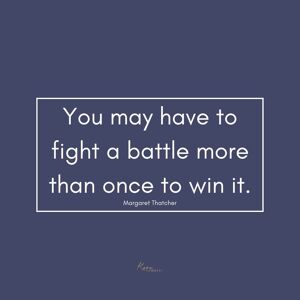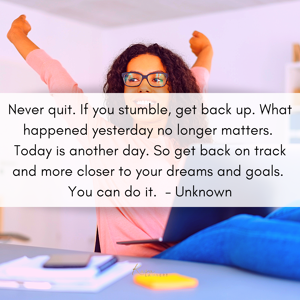The clients who have been with me for a while, even if it’s only been stalking my socials, ask me how I get back on track. I get it, life happens, and it comes to a point where we need to pull it all back together and move forward.
So this blog is about what I do to get back on track.
Introduction
A quick background of the things I’ve had to use these skills on:
– supporting my parents through my Dad’s brain cancer treatment & death
– following advice that wasn’t in the best interest of me or my business
– breakdown of a toxic family relationship
– burnout
– illness (including covid)
– holidays/school holidays
With the exception of a few weeks when my dad died, my business carried on in these situations. Generally, I wind things back and rely on my minimum viable product. All required a reset in thinking when I felt ready to get back into my business.
All had a feeling that I was somehow behind the 8-ball with my business when I was coming back. (Yes, even summer holidays each year or a month off with the family)
Some had me using the time to re-evaluate my business offerings. Yes, even the summer holidays just gone had me reconsider the role of courses in my business. While the times may be tough, I often find by leaning in I get the space to reconsider what I want out of my business.
Hint: If this is you right now, lean in. Allow yourself this time and this space away from your business to be. You’ll be surprised what comes when you’re not “pushing” for it.
Why getting back on track after a difficult time is important
So why did I find it important to get back on track? I love what I do. I love seeing the change it makes to the lives of business owners (cliché but true). I like the money and what that means for my family. I enjoy focusing on something else (distraction does work).
But I went to the research and this is what I found about why getting back on track after a difficult time is important:
- Loss of revenue and customer trust. According to a study by Small Business Trends, businesses that fail to recover from a challenging period are more likely to experience a loss of revenue and customer trust. Customers are less likely to trust businesses that have struggled and may take their business elsewhere if they perceive a lack of stability.
- Increased risk of closure. A report by the Small Business Administration found that businesses that experience a major disruption, such as a natural disaster or economic downturn, are more likely to close within two years. This underscores the importance of getting back on track as quickly as possible to avoid closure.
- Opportunity for growth and innovation. A study by the Harvard Business Review found that businesses that successfully recover from a challenging period often emerge stronger and more resilient. They may find new opportunities for growth and innovation and be better equipped to handle future challenges.
- Importance of planning and strategy. A survey by the National Federation of Independent Business found that businesses that were better prepared for a challenging period, such as having a contingency plan or access to emergency funding, were more likely to recover successfully. This highlights the importance of planning and strategy in getting back on track.
So what do I do to get back on track? Let’s get into it.
Acknowledge why you are getting back on track
Nope, sweeping the issue under the carpet does not make it go away. I’ve tried. Coming back from inappropriate advice taught me that my mindset was crucial to my success and that I couldn’t ignore it. Grieving my Dad taught me that it’s a process and will rear its head when you least expect it. Getting back on track after burnout taught me the depths these issues can lie and sometimes you need to be patient for them to rise.
mindset was crucial to my success and that I couldn’t ignore it. Grieving my Dad taught me that it’s a process and will rear its head when you least expect it. Getting back on track after burnout taught me the depths these issues can lie and sometimes you need to be patient for them to rise.
Whenever I have tried to ignore the underlying cause, I’ve either relapsed or not made a full recovery. Faking it until you make it will only take you so far, then you need to do the work to be able to truly get back on track.
What does the science say about the importance of accepting what got us to having to get back on track?
To be honest, it was only in writing this blog that I learnt the science behind it. Personally, I’m the kind of person who introduces the elephant in the room. But to be fair, sometimes it’s really hard to accept what has gotten us to the place where we actually need to get back on track. So, what does the science say about accepting why we have to accept why we need to get back on track?
- Building resilience: According to a study by the American Psychological Association, people who are resilient tend to accept and learn from difficult experiences, which helps them cope with future challenges. Accepting a challenge we’ve overcome can help us develop resilience and better prepare us for future setbacks.
- Boosting self-confidence: A report by Psychology Today suggests that accepting a challenge we’ve overcome can boost our self-confidence and sense of self-efficacy. This can help us approach future challenges with a greater sense of optimism and determination.
- Reducing stress: A study by the University of California, Riverside, found that people who accept challenges they’ve overcome tend to experience less stress and anxiety than those who dwell on their past failures. By accepting our past challenges and focusing on what we’ve learned, we can reduce stress and move forward with greater clarity and purpose.
- Increasing motivation: According to a study by the University of Rochester, reflecting on past successes can increase motivation and improve our ability to set and achieve goals. By accepting a challenge we’ve overcome, we can tap into this motivational power and channel it toward getting back on track.
For me, it’s about long-term gain. I believe that these things offer lessons and I’m damned certain that I’m going to learn from the crappy stuff I’ve had to experience, even if it’s only so I don’t do it again.
What can you do to accept what has caused you to be in a place where you need to get back on track
So I’m a pragmatic person and very much an “ok that’s done, now let’s get on with it” person. Don’t get me wrong, I wallow, but I’m also solutions focused. I’m also not much for playing the victim, even when I am the victim.
I encourage you to look at the role that you played in getting into the situation. (Yes, I choose to take time off in summer for school holidays and that needs to be considered as a role I play) Work out the lessons from it and see what you may do differently if you find yourself in the same or similar situation. Accept that it happened and you’re where you are and you have a choice to get back on track. (Hopefully in your own terms)
The actual steps I take to get back on track
I’ve refined this process through the years and I have to say that I will always do the first two. Getting back on track is a mindset game. For me the two big parts are resilience and motivation and I find that the first two steps really help with my resilience. When the timeframe is short, I don’t always have to revisit my goals and plans. I may check in to see if I need to change them but I generally don’t need reminding of them.
Checking in with my core values
Our core values are like a compass. They keep us on track. When we behave outside of them, we can feel out of sorts, off track, agitated. Psychologists call this cognitive dissonance and it occurs when we have a conflict between our beliefs, values, attitudes, or behaviour.
Part of me getting back on track is to remind myself of my core value (courage) and to check in and see if I have any recent, or ongoing, conflict. Quite often I find that I have a conflict between behaving with courage and what I did (often people-pleasing).
Unpacking and rewriting any story I am playing
More often than not, there is a story that I am telling myself about the situation I’ve just come out of. Perhaps it’s about the role I believe I played, things I think I could/should have done, or just ‘beating up on myself’. I find this step particularly helpful when I’ve taken inappropriate advice. In those circumstances, I need to look at why I didn’t trust my intuition or keep to my vision and instead adopted someone else’s.
Briefly, I write out the story I tell myself as best I can and then I write down the facts that back up the story. Then I write down the facts as they are and particularly those that contradict or oppose the story. More often than not the facts that support the story are things people have said or done to me and are not actually facts. I will then rewrite the story based on the facts as they exist and that is in the majority and also contradict the story.
Seeking professional help
While my Dad was undergoing cancer treatment, while I was recovering from burnout, and while I was having issues with the family member, I was seeing a psychologist. While you don’t have to see a psychologist, seeing someone who is external to the situation and is trained in helping people recover from similar situations is helpful.
member, I was seeing a psychologist. While you don’t have to see a psychologist, seeing someone who is external to the situation and is trained in helping people recover from similar situations is helpful.
Seeking professional help when you are getting back on track can help you process what happened, gain perspective on your role, and/or help you find the skills to help you get back on track.
Talking to people in my Arena
I have a close group of people who understand various aspects of my business and personality and I go to them as a sounding board or for advice. These people provide honest advice, especially if they know it’s in my best interest and not necessarily what I want to hear.
I go to them when I am getting back on track as many have done it themselves, though the circumstances may have differed, and can either give me advice on things they’d do differently or things to consider.
Revisiting my goals and planning documents
Finally, I go back to my annual plan and quarterly plan, not necessarily to see how far out I am but more to see what no longer serves me and what I want to do in my business. Even the major life events (and holidays) have resulted in me changing the services that I offer. Getting back on track is an excellent time to re-evaluate objectives.
Embracing the new track
One of the big hurdles I often have to overcome is the idea of how things ‘should’ be and especially where I ‘should’ be at by now. It will sometimes rear its head when I am getting myself back on track. The benefit of leaning into difficult times is that I often use it as a time to reassess. So, any feeling that I’m not where I should be get quickly quashed by a fact check on where I’m now headed. And yes, I do have to remind myself that I’ve changed tack and that I am not going to be where I thought I would.
If you go back to what the science says about this process and that it is beneficial for: resilience, self-confidence, stress reduction, and motivation; then it makes sense to even be excited for what’s to come. (No I don’t recommend going through rough times just for these)
Some of the things that have come out of me getting back on track:
– renewed focus on the psychology of social media & being a speaker, mentor, & expert in the field
– creating a social media system that saves me time & stress
– getting super clear on what drives my audience
– dedication to impactful business
– getting super clear on why I run my own business
– getting clear on where my clients hang out
So it really has given me clarity, focus, and opportunity. These are the bedrock to building a successful and lasting business.
Conclusion
Getting back on track can take courage, it can also require us to be vulnerable. I find that leaning into to the time when I have to step back from my business is helpful. I really learn a lot.
Understanding that there is a cost with not getting back on track (please do this in your own time and most of us know when the right time is). Added to the cost is the loss of the benefits if you don’t.
Getting back on track can take time, can mean some steps back, and can be anything but linear.
The process that I follow is the one that works for me. I am a big believer in the role of mindset in recovery and that I do not have to do it alone.
Remember that you’re not bouncing back or starting over. You have learnt a lot through this process and that knowledge has value. You’re not going back to how you were before, so you can’t bounce back as you’ve moved on. You aren’t starting over as you’ve not lost knowledge or skills, you’ve gained them. Move forward knowing that you have made it through and are a stronger and more resilient person for it.


